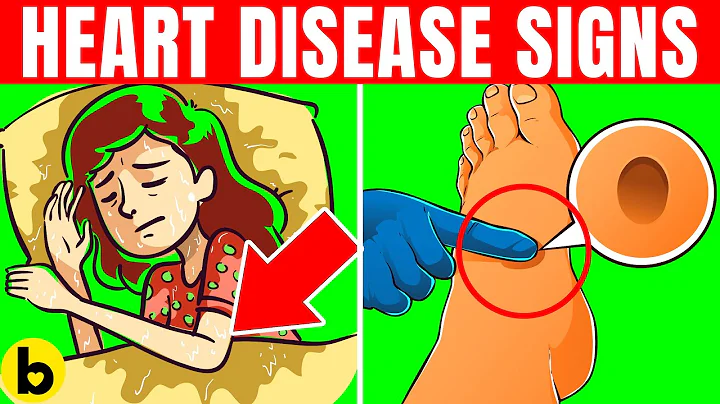In life, many people have experienced palpitation. Some people experience bouts of palpitation and discomfort, some occasionally feel their heart skip a beat, and still others experience palpitation and shortness of breath accompanied by Chest tightness and chest pain, these may be symptoms of arrhythmia . In summer, the body is not adapted to the hot climate, which often causes the frequency of arrhythmia to peak. So, what should we do once "panic" occurs?

Panic palpitations are not necessarily ill.
Many people think that the reason why they have palpitation must be because of heart problems, so they worry all day long. In fact, this is not necessary. Arrhythmia can be seen in various organic heart diseases , and can also occur in healthy people and people with autonomic nervous system dysfunction.

A normal heartbeat is initiated by the sinus node with a frequency of 60 to 100 beats/min and a regular rhythm. Because it originates from the sinoatrial node, it is medically called sinus rhythm . The heartbeat is not eternal. It fluctuates with activity and emotion. The heartbeat can increase when you are active, happy, or angry; it can slow down when you are resting quietly and sleeping. In medicine, a heartbeat exceeding 100 beats/min is called sinus tachycardia ; a heartbeat less than 60 beats/min is called sinus bradycardia ; an irregular rhythm is called sinus arrhythmia; origin Heart rhythms outside the sinoatrial node are abnormal heart rhythms. Arrhythmia refers to any abnormality in the origin of heart rhythm, heart rate, rhythm and impulse conduction. It can be divided into rapid (such as premature beats and tachycardia , etc.) and slow (such as conduction block etc.) Arrhythmia.

If you have panic attacks on weekdays, don’t worry and go to the hospital for examination and treatment in time. If the palpitation attack lasts for a short time, it is recommended to do a 24-hour dynamic electrocardiogram . This test can accurately record the electrocardiogram during the palpitation, and can help doctors analyze and determine whether arrhythmia has occurred, what type it belongs to, and then determine whether treatment is needed. and how to treat it.

Examination first distinguishes between good and evil
Arrhythmias are divided into benign arrhythmias and malignant arrhythmias . As can be seen from the name, not all arrhythmias must be treated.
Benign arrhythmias (also called non-organic arrhythmias, such as occasional atrial premature, ventricular premature, right bundle branch block, etc.) can only be observed without urgent treatment. A special point to note here is that some people find that they have left or right bundle branch block and are very worried and anxious. In fact, there is no need. Simple bundle branch block , if asymptomatic, will not have much impact on the heart. Of course, the exception is the new occurrence of left bundle branch block and multifascicular block.
Benign arrhythmias are mostly caused by bad living habits, emotional stimulation, cold stimulation, strenuous exercise and other factors in daily life. The symptoms are generally mild, manifesting as mild palpitation, chest pain, insomnia, and some people even have no discomfort at all. Feel. Under normal circumstances, recovery can be achieved by removing the trigger and paying attention to conditioning in life.

Compared with non-organic arrhythmias, arrhythmias caused by coronary heart disease , cardiomyopathy , heart failure , rheumatic heart disease and other heart diseases are organic arrhythmias. Arrhythmias can not only cause obvious symptoms such as palpitation, shortness of breath, chest tightness, and chest pain, but can also aggravate the original disease, and may even lead to cardiac arrest, posing a threat to life, and therefore also become malignant arrhythmias. Patients who are diagnosed with organic arrhythmia after examination must be treated, and the original disease must be identified. Only by actively treating the primary disease can the arrhythmia be cured.
Treatment of arrhythmia is divided into drug treatment and non-drug treatment.Drugs used to treat tachyarrhythmias include Na+ channel blockers (propafenone, lidocaine , etc.), beta blockers (metoprolol, bisoprolol , etc.), action potential prolongers (Amiodarone) and calcium antagonists (Verapamil); drugs used to treat bradyarrhythmia include atropine, isoproterenol , etc. Since drug treatment can easily produce drug resistance , and can cause arrhythmia, inhibit myocardial contraction and other side effects, it must be taken under the guidance of a doctor. Non-drug treatments currently include radiofrequency ablation, artificial cardiac pacing, and electrical cardioversion.

For arrhythmias, prevention is better than cure. Only by changing bad living habits and maintaining a good attitude can a normal heart rhythm be "spiked". I am Dr. Tan Hongwei from the Department of Cardiology, Tongji Hospital Affiliated to Tongji University. I welcome readers to communicate and consult.





















